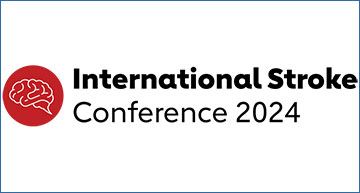
Intracerebral hemorrhages (ICH), one of the most severe types of stroke, are caused when a blood vessel bursts inside the brain and causes bleeding in the brain. Hemorrhagic strokes account for 50% of stroke deaths and can cause high neurological disability.
University of Cincinnati researchers including first author W. Shea Wright, MD, used RNA sequencing to identify two new genetic pathways that are associated with worse outcomes for ICH patients.
“DNA gives us the blueprint, but RNA tells us what’s actively going on,” said Wright, a stroke fellow at the UC Gardner Neuroscience Institute. “RNA sequencing gives us the ability to look at every single genetic change that’s occurring within multiple cell types and then see how those genetic changes compare between patients who have poor outcomes versus those who had good outcomes.”
The researchers took blood samples from 278 patients no more than 15 days after their hemorrhagic stroke. Three months after the stroke, they used a standard scale to grade each patients’ symptoms and functional independence.
“After we determined at three months what group the patients fell into, we were able to look at their baseline whole blood and gene sequencing and see which patients did well versus which ones did poorly,” Wright said.
The first pathway the team found overexpressed in patients with worse outcomes affects blood coagulation and cellular interactions.
“Sometimes patients with ICH can be more prone to developing clots after their hemorrhage, and those patients don’t do as well, so that pathway is interesting for that reason,” Wright said.
The second pathway affects immune system activation through specialized white blood cells called neutrophils, which make neutrophil extracellular traps (NETs). Increased expression of genes involved in making NETs were associated with worse ICH outcomes.
“The body is really good at walling off organisms whenever there’s an infection or something else,” Wright said. “But perhaps when it comes to intracerebral hemorrhage, when it tries to wall off the hemorrhage, that just creates more inflammation and longer or worse tissue repair.”
Wright said the research is still in early stages, with the data gleaned on the two pathways helping generate new hypotheses for further study. Moving forward, the team will look to learn more on how the pathways can be targeted with the long-term goal of developing a drug that improves ICH outcomes.
While clinical trials testing surgical approaches to improve ICH outcomes have been largely unsuccessful, Wright said she is hopeful focusing on genetic changes could be more fruitful.
Source – University of Cincinnati
Wright W, Langefeld C, Comeau M et al. (2024). Abstract 147: Novel Inflammatory and Pro-Thrombotic mRNA Pathways Associated With Worse 3-month Outcome After Intracerebral Hemorrhage. Stroke 55. 10.1161/str.55.suppl_1.147. [abstract]




